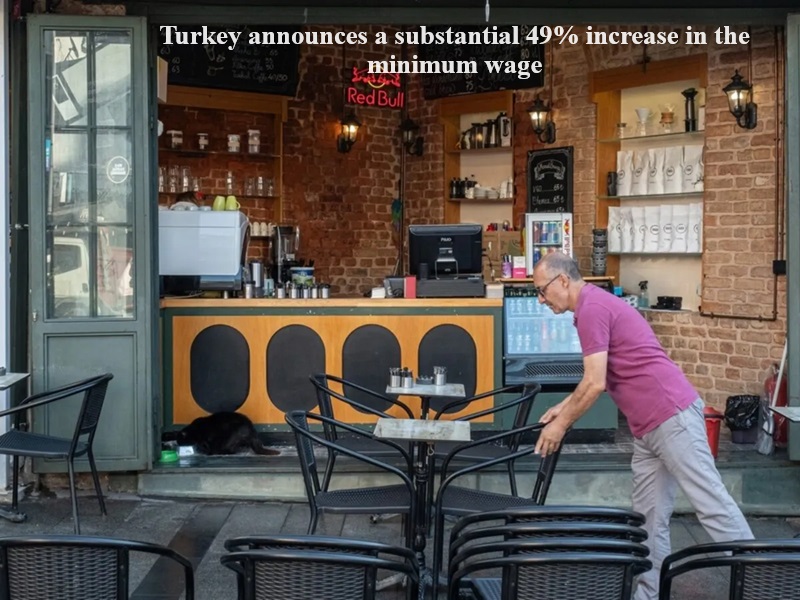
In an effort to address the increasing pressure of rising living costs, Turkey has announced a significant 49% increase in the minimum wage for the upcoming year. The monthly net minimum salary will now be 17,002 liras ($578), as declared by Labour Minister Vedat Isikhan during a televised press conference. This decision is crucial as inflation is expected to exceed 70% in the coming months, shaping the country’s economic landscape.
The increase in the minimum wage is a departure from previous years’ dual adjustments and is aimed at alleviating the impact of inflation on over a third of the nation’s workforce earning the minimum wage. Labour Minister Isikhan emphasized the government’s commitment to preventing the workforce from being negatively affected by inflation, stating, “We fulfilled our promise not to allow our workers to be crushed by inflation.”
The move is closely watched by credit rating agencies and investors seeking insights into Turkey’s economic trajectory, especially post the May elections and in anticipation of the municipal ballot in March. Analysts from Wall Street, including Goldman Sachs Group Inc. and Morgan Stanley, have cautioned that a minimum wage adjustment exceeding 40-50% could complicate the central bank’s efforts to control inflation.
Turkey’s economic leadership faces the challenge of balancing the need to address the cost-of-living crisis while avoiding hindrance to ongoing efforts to reduce inflation by nearly half by the end of the next year. Unlike previous years with two wage adjustments, the government plans a single hike for 2024.
Turkey’s chronic inflation, reaching its highest point in almost a quarter of a century last year, has significantly eroded citizens’ purchasing power. The decision to raise the minimum wage is seen as a strategic move by the government to retain popular support. President Recep Tayyip Erdogan, known for advocating cheap money, has revamped the economic leadership team with a focus on curbing domestic demand, including a drastic increase in interest rates by the central bank to counter inflation. The central bank projects that inflation will end this year at 65%, peak above 70% in May, and subsequently conclude 2024 at 36%.

Post Your Comments